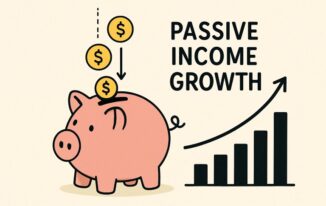In the world of investing, the ability to accurately assess the value of stocks is paramount. Whether you are a seasoned investor or someone just getting started, understanding stock valuation can be the difference between profitable investments and missed opportunities. Stock valuation influences not only the timing of your investment decisions but also the overall profitability of your portfolio. One tool that has gained significant attention in this context is AlphaSpread, a platform that provides in-depth financial analysis and data to help investors make smarter, more informed decisions.

What is Stock Valuation?
Stock valuation is the process of determining the current worth of a company’s stock. It is an essential part of the investment process and helps investors make decisions about buying, holding, or selling stocks. The goal of stock valuation is to determine whether a stock is underpriced, overpriced, or fairly valued based on its intrinsic value, which reflects the company’s fundamentals, growth prospects, and risk factors.
Several methods are used to calculate stock valuation, including:
- Price-to-Earnings (P/E) Ratio: A common metric that compares a company’s market value to its earnings. A high P/E ratio may suggest that a stock is overvalued, while a low P/E ratio may indicate an undervalued stock.
- Discounted Cash Flow (DCF) Analysis: This method estimates the present value of a company’s future cash flows, adjusted for risk. If a stock’s market price is lower than its estimated intrinsic value based on DCF, it may be considered undervalued.
- Price-to-Book (P/B) Ratio: This ratio compares a company’s market price to its book value (assets minus liabilities). A P/B ratio lower than 1 may signal that a stock is undervalued, while a ratio greater than 1 suggests overvaluation.
Stock valuation is not only about understanding whether a stock is priced too high or too low; it also involves timing—knowing when to enter or exit a stock based on its current and projected valuation. Platforms like Alpha Spread play a crucial role in providing data and analytical tools to aid investors in evaluating stock prices against intrinsic value and market trends.
The Link Between Stock Valuation and Investment Timing
Investment timing is one of the most critical factors influencing profitability. It involves deciding the right moment to buy or sell an asset in order to maximize returns. Stock valuation directly impacts investment timing because it helps investors determine the ideal entry and exit points for their investments.
Entering the Market: Buying Undervalued Stocks
One of the most fundamental principles of stock investing is buying low and selling high. This means identifying undervalued stocks—those that are selling for less than their intrinsic value. These stocks often represent buying opportunities because they are priced below their potential, and as market conditions improve or as the company’s performance strengthens, the stock price may rise.
For example, if a stock is trading at $50 per share, but its intrinsic value is calculated to be $70, an investor might decide to buy, expecting the price to rise as the market corrects itself. However, timing is critical. If an investor buys a stock that is undervalued but has yet to show signs of price correction, they may have to wait months or even years before realizing returns. Therefore, stock valuation helps determine not only if a stock is a good buy but also whether the timing aligns with the investor’s goals.
Platforms like https://www.alphaspread.com/ provide real-time valuation insights, enabling investors to spot opportunities where stocks may be trading below their intrinsic value, allowing them to make more timely and informed decisions.
Selling High: Recognizing Overvalued Stocks
Conversely, knowing when to sell a stock is just as important as knowing when to buy. A stock may become overvalued when its market price exceeds its intrinsic value. In such cases, holding the stock could expose an investor to significant downside risk as the market eventually corrects the mispricing.
For instance, a stock trading at $200 per share with an intrinsic value of $150 is likely overvalued. If an investor holds on to such a stock, hoping the price will continue to rise, they could face significant losses if the price drops back toward its intrinsic value. Stock valuation is essential for identifying overvalued stocks and making timely exit decisions to lock in profits before a potential market correction.
Stock Valuation and Profitability: Maximizing Returns
The primary objective of stock investing is to maximize profitability. By accurately valuing stocks and timing investment decisions effectively, investors can increase the likelihood of achieving significant returns. However, stock valuation is not only about identifying undervalued or overvalued stocks; it also involves understanding how various factors contribute to an asset’s long-term profitability.
Fundamental Analysis for Long-Term Profitability
Stock valuation is an integral part of fundamental analysis, which is the process of evaluating a company’s financial health, performance, and future growth potential. By examining a company’s financial statements, earnings reports, debt levels, and market position, investors can gain a deeper understanding of its true value.
The key to maximizing profitability lies in identifying companies with strong fundamentals and solid growth prospects that are undervalued by the market. These companies have the potential for long-term profitability, as their stock prices are likely to appreciate over time as the market recognizes their intrinsic value.
Using Alpha Spread, investors can access detailed financial analysis and metrics that provide valuable insights into a company’s fundamentals. With this information, investors can make more informed decisions about which stocks to buy, hold, or sell, increasing the likelihood of profitable returns.
Market Trends and Timing: Short-Term Profitability
While fundamental analysis plays a crucial role in long-term profitability, stock valuation is also essential for short-term gains. Market trends, sentiment, and macroeconomic factors can all influence stock prices in the short term. In this context, stock valuation helps investors identify mispriced stocks that may provide quick profit opportunities.
For example, if a company has strong fundamentals but is temporarily undervalued due to market sentiment or external factors, it may present a short-term buying opportunity. By recognizing these opportunities, investors can capitalize on price fluctuations and realize quick profits.
Platforms like Alpha Spread offer tools that help investors track real-time market trends, providing insights into when stocks may be mispriced in the short term. This information allows investors to make more strategic decisions and take advantage of market inefficiencies.
The Role of Alpha Spread in Stock Valuation
Alpha Spread is a comprehensive platform designed to assist investors in evaluating stock valuation and making more informed investment decisions. By providing detailed financial data, valuation metrics, and market insights, Alpha Spread empowers investors to assess the intrinsic value of stocks and determine whether they are underpriced or overpriced.
Real-Time Valuation Insights
One of the most valuable features of Alpha Spread is its ability to provide real-time stock valuation insights. Investors can access up-to-date information on a company’s financials, earnings forecasts, and intrinsic value calculations. This enables investors to make timely decisions based on the latest data, improving their investment timing and profitability.
For example, if an investor is monitoring a particular stock, Alpha Spread can provide a snapshot of the stock’s current market price, P/E ratio, and intrinsic value. This information allows the investor to determine whether the stock is undervalued or overvalued relative to its current market price, helping them decide when to buy or sell.
Risk-Adjusted Return Metrics
In addition to valuation insights, Alpha Spread offers tools to assess risk-adjusted returns. The platform calculates metrics such as the Sharpe ratio and Alpha to help investors understand the performance of their investments in relation to their risk exposure.
By using Alpha Spread to assess risk-adjusted returns, investors can better gauge the potential profitability of a stock while accounting for the risks involved. This is particularly useful when making decisions about stocks that may appear undervalued but carry higher levels of risk.
Stock Valuation as a Dynamic Process
It is important to note that stock valuation is not a static process. A stock’s intrinsic value can change over time due to shifts in market conditions, economic factors, and company performance. Therefore, stock valuation should be seen as a dynamic tool that requires constant monitoring and adjustment.
As market conditions evolve, so too will the intrinsic value of stocks. This means that an undervalued stock today may become overvalued in the future, and vice versa. By regularly reassessing the value of your investments using platforms like Alpha Spread, you can ensure that your portfolio remains aligned with your investment goals and that your timing remains optimal for profitability.
Conclusion
Stock valuation is a critical component of successful investing. By accurately assessing the intrinsic value of stocks, investors can make more informed decisions about when to buy, hold, or sell. Timing plays a significant role in determining profitability, and stock valuation is the key to making the right timing decisions.
Platforms like Alpha Spread provide the necessary tools and insights to enhance stock valuation and improve investment strategies. By leveraging real-time data, valuation metrics, and risk-adjusted return analysis, investors can increase their chances of profitability while minimizing risk.
Whether you’re focused on long-term growth or short-term gains, understanding how to value stocks correctly will empower you to make smarter, more profitable investment decisions.



